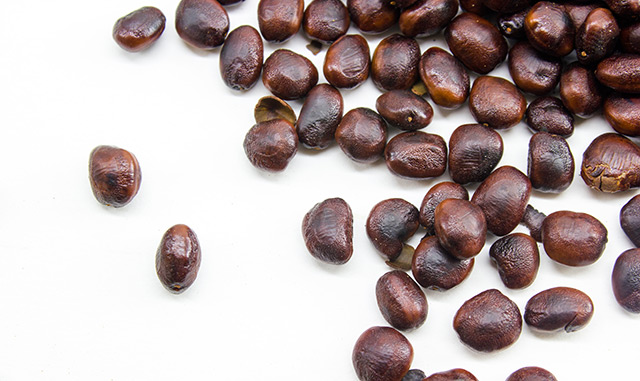The protective effects of walnuts against inflammation and neurodegeneration
04/02/2019 / By Michelle Simmons

A study published in the journal Nutrition Research found that walnuts contain bioactive compounds that modulate microglial activation. This suggests that walnuts may help fight inflammation and neurodegeneration.
- Researchers at Tufts University hypothesized that whole walnut extract inhibits lipopolysaccharide (LPS)-induced microglial activation by regulating calmodulin expression through calcium ions.
- They tested their hypothesis by treating a rat microglial cell line with different concentrations of whole walnut extracts.
- The results showed that treatment with whole walnut extract resulted in a slow increase in intracellular calcium in a dose- and time-dependent manner.
- This increase became amplified when cells were depolarized with potassium chloride.
- Treatment with whole walnut extract also increased calmodulin protein levels in cells, regardless of the concentration.
- Pretreatment with thapsigargin, a tumor promoter in mammalian cells, blocked this whole walnut extract-induced upregulation of calmodulin.
- Moreover, treatment with whole walnut extract one hour before LPS treatment effectively prevented LPS-induced upregulation of inducible nitric oxide synthase expression, upregulation of ionized calcium ion-binding adaptor-1, and downregulation of calmodulin.
- These findings indicate that bioactive compounds in walnuts can modulate microglial activation by regulating intracellular calcium and CaM expression.
To conclude, the researchers suggest that walnuts may be used to reduce chronic inflammation and prevent neurodegeneration.
To read more studies on walnuts and inflammation, visit FoodIsMedicine.com.
Journal Reference:
Thangthaeng N, Poulose SM, Fisher DR, Shukitt-Hale B. WALNUT EXTRACT MODULATES ACTIVATION OF MICROGLIA THROUGH ALTERATION IN INTRACELLULAR CALCIUM CONCENTRATION. Nutrition Research. January 2018; 49: 88-95. DOI: 10.1016/j.nutres.2017.10.016
Tagged Under:



















